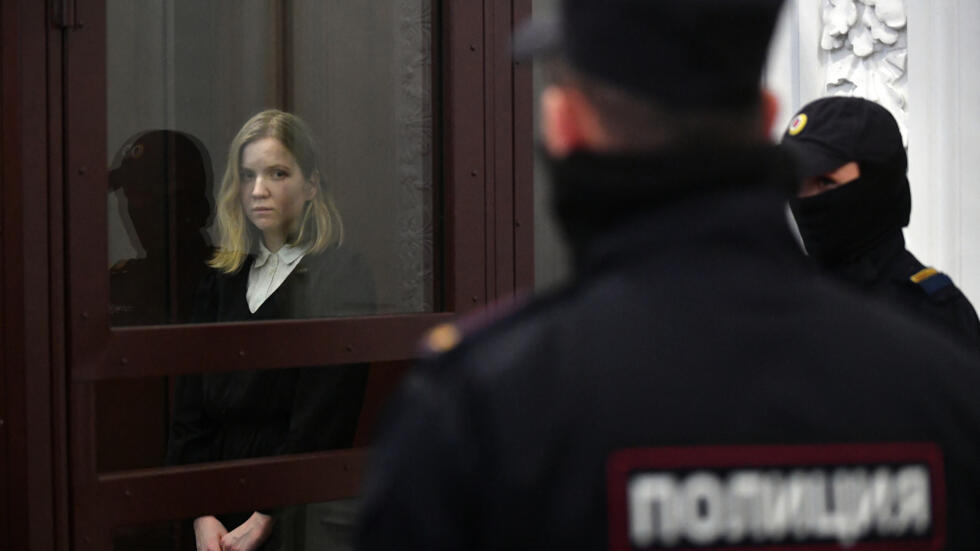Darya Trepova, 26, was convicted by a St Petersburg court of terrorism, handling explosives and using forged documents in connection with the death of blogger Vladlen Tatarsky.
She showed no visible emotion in response to the sentence, which Russian media said was the harshest given to any woman in the country’s modern history. Her defence team said they would appeal.
Tatarsky was killed by a bomb concealed inside a statuette in his likeness that Trepova had presented to him as a gift during a talk he was giving in a St Petersburg cafe.
Trepova said she had been set up, and had thought the statuette contained a listening device, not a bomb.
She told the trial she was acting under orders from a man in Ukraine whom she knew as “Gestalt” (German for “Shape”), who had been sending her money and instructions for several months before the cafe bombing.
Russia accused Ukraine immediately after the attack of organising the murder of Tatarsky, whose real name was Maxim Fomin. He was one of a group of prominent bloggers who have built up large online audiences as cheerleaders for Russia’s war in Ukraine, while sometimes criticising its tactics.
Senior Ukrainian officials have neither claimed responsibility nor denied involvement in Tatarsky’s death, with presidential aide Mykhailo Podolyak describing it as “internal terrorism”.
Trepova said she had gone along with Gestalt’s instructions because she assumed the purpose of eavesdropping on Tatarsky was to find out more of what he knew about the war, which she opposed.
“I feel great pain and shame that my gullibility and my naivety led to such catastrophic consequences. I didn’t want to hurt anyone,” she told the court earlier this week, speaking directly to people who were wounded in the bombing and who have claimed substantial amounts in compensation from her.
“I feel especial pain and shame that a terrorist act was carried out by my own hands.”
The defence said Trepova too was a victim because, sitting only several metres from Tatarsky, she could herself have been killed or wounded.
The prosecution argued that she had known about the bomb and “acted deliberately with the aim of destabilising the Russian Federation and discrediting the special military operation” – the official name for Moscow’s war effort in Ukraine.
After the bomb went off, Trepova said she had panicked. Knowing that she risked arrest, she ignored an instruction from “Gestalt” to head to the airport and catch a flight.
Instead she called her husband, who asked a friend of his called Dmitry Kasintsev to let her stay at his apartment that night. She was arrested there the following day.
Kasintsev, 27, was sentenced on Thursday to one year and nine months for helping her to hide, despite testimony from Trepova that she had never met him before and he had nothing to do with the bomb.
(Reuters)


